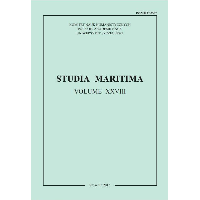Polityczne i gospodarcze aspekty relacji polsko-szwedzkich w latach 1945–1989
Political and Economic Aspects of the Relations between Poland and Sweden in 1945–1989
Author(s): Arnold KłonczyńskiSubject(s): Economic history, Recent History (1900 till today), International relations/trade, Accounting - Business Administration
Published by: Wydawnictwo Naukowe Uniwersytetu Szczecińskiego
Keywords: political and economic relations between Poland and Sweden; stages of development of the mutual relations; the period of the Polish People’s Republic;
Summary/Abstract: The recognition of the Provisional Government of National Unity (PGNU; Polish: TRJN) and signing of the economic agreement between Sweden and Poland in July 1945 opened a new chapter in the history of the relations between those two countries. This paper presents the diversified forms of bilateral contacts in the economic and political sphere during 44 years (1945–1989) and is an attempt to answer the question which international and internal factors influenced the directions of development of the relations between the two Baltic countries. In that long period of 44 years several stages of cooperation might be identified when those factors changed drastically. In the first stage (1945–1951) the commercial exchange was growing fast and at the same time the political relations were deteriorating, which – to a considerable degree – resulted from the atmosphere of the cold war tension. In the subsequent stages (1952–1960; 1961–1969; 1970–1979; 1980–1989) the situation kept changing, which was influenced by several economic and political factors, both international and internal in character. But in spite of the two countries’ will and involvement the deadlock in the last period was not broken. In spite of the Polish expectations based on the tiny distance between the two countries (which guaranteed low costs of transport), concerning a fast modernisation of its economy, which required foreign loans and exports of necessary raw materials such as iron ore, and high-class machines and equipment, the Swedish lost their confidence in the prompt completion of the contracts and in the quality of the delivered merchandise. The political shock resulting from the martial law and the support by the Swedes for the opposition in Poland did not make the existing contacts easier. The basic sources for the analysis have been the Polish and Swedish archival materials, statistical data and press commentaries.
Journal: Studia Maritima
- Issue Year: 28/2015
- Issue No: 1
- Page Range: 125-155
- Page Count: 31
- Language: Polish

